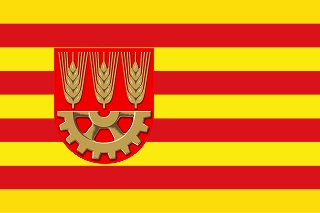Strength: Mild
Description:
This fair and august World Assembly,
Noting that the cosmos is the final frontier,
Recognizing that the exploration and discovery of planets, spacial anomalies, and other phenomena is necessary,
Realizing that the colonization of outer space calls for a neutral representative to deal with claims to territory,
Hereby:
- Defines:
- Planet as "an astronomical object that orbits a star or stellar remnant which is large enough to hold a spheroid shape and is able to clear its orbit of any debris;"
- Planetoid as "a celestial body comprised of rock, ice, etc. that is smaller than a planet;"
- Interstellar space as "the area of space beginning at the end of the menopause of star systems;"
- Contamination as "the accidental introduction of alien species into a world's native ecosystem without a means of population control;"
- Terraforming as "the intentional alteration of a planet's atmosphere, soil composition, present species, etc. to better suit the living conditions of an organism or a group of organisms;"
- Creates IOTA (Interstellar Organization for Territorial Assemblage) and assigns it to:
- Act as a neutral third-party in territorial disputes between nations with the consent of the two or more nations;
- Maintain a starmap of all submitted claims of territory by World Assembly members;
- Record treaties and settled disputes over territory, updating the starmap as needed;
- Have a representative available to settle territorial disputes;
- Mandates members of the World Assembly to:
- Notify the IASA of any anomalous stellar or planetary activity detected in interstellar territory that is potentially dangerous;
- Have a diplomatic representative available at all times;
- Maintain the natural biodiversity and environment of life-supporting planets under the protection of the IASA by prohibiting the contamination of such planets without permission from the IASA;
- Encourages members of the World Assembly to:
- Resolve territorial disputes through a neutral third-party representative, preferably IOTA;
- Submit territorial claims to planets and planetoids to IOTA for the purpose of charting the galaxy;
- Construct starbases in interstellar space for the purposes of trade and commerce, refueling, or any other reasonable purpose;
- Propose suggestions of large scale projects;
- Engage in international science expeditions;
- Terraform planets to match the environmental criteria of the colonizer nation;
- Prevent the contamination of planets already supporting sentient complex life;
- Send statistics (i.e. mass, density, atmospheric composition) of planets owned by themselves or planets claimed by no such government to IOTA.









